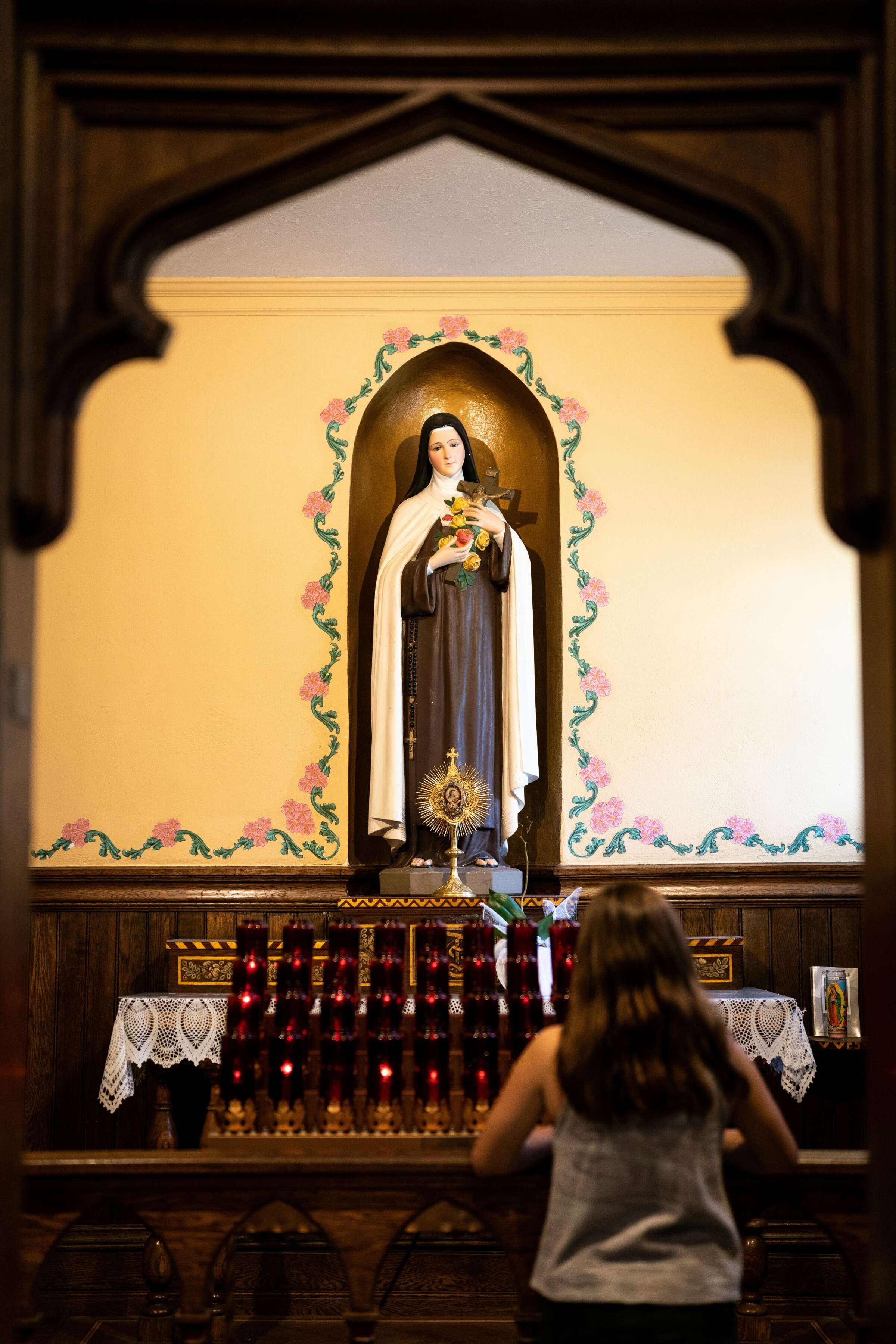Why do Catholics honour the saints?
Amongst some of the well-loved Christmas carols that roll out every year there is one that helps us to grasp the place of saints in the lives of many Catholics. The carol begins ‘Good King Wenceslas, looked out on the feast of Stephen…’ and goes on to tell the heart-warming story of the kindness of this King who spots a poor person gathering wood in the snow and wants to take him food so calls his page to help him.
The page willingly does so, but after a while finds it difficult to continue in the hostile conditions and tells Wenceslas as much. Wenceslas, unrelenting in his mission, advises the page to follow him by treading in the footsteps he, the good king, has made. When the page does so, he is surprised to find heat was in the very ground, “which the saint had printed.”
Saints are ordinary people who have done at least one extraordinary thing
For so many people who follow Jesus Christ, it seems impossible to live as a good Christian and all of us need the support and example of others to help us along the road. Many have been inspired to embark on this challenging but worthwhile adventure because of the example of someone else. For many Catholics that example and support can come from a saint.
What is a saint?
Saints are ordinary people who have done at least one extraordinary thing, they have followed Jesus Christ, putting him at the centre of their life to the best of their ability. In doing so, something extraordinary happens to them, they become most full themselves, using their potential not for selfish motives but to help others and to worship God. When they die, these holy men and women are recognised as being in heaven, the ultimate destination of every Christian. Recognising particular people as having reached their ultimate goal helps many Catholics on their own journey of faith. To ‘venerate’ a saint, is not to worship him or her, but to do something like the page in the carol, to ask for help when struggling and follow the footsteps of a saint who has gone down a similar path before us.
Continued below...

How does someone become a saint?
We are all called to be saints in the making, to follow Christ, growing most fulling into who God created us to be by loving God and others. Those named as saints are part of the Church in heaven, so the first criteria for recognising a saint is to work out whether they could be in heaven. In short, they must have died and after their death performed at least two miracles. This is because Catholics believe it would only be possible to perform a miracle after death if the saint were in heaven.
Catholics, and some other Christians, take heart at the wonderful things different saints said and did during their lives
Most of the time, the recognition of these saints and the miracles they perform starts at grass roots, with ordinary Catholics who sense there is something special about this person and asks for or notices a miracle. As this following grows, the stories of potential miracles are explored by the leadership of the Catholic Church. If the miracles are found to be real and the lives of the possible saint a good witness to others, the process of becoming a saint is begun.
What difference can saints make?
Saints are signs of hope, because they reveal that what Jesus promised when he said, ‘I came that they might have life, and have it to the full’ (John 10:10) is real. Catholics, and some other Christians, take heart at the wonderful things different saints said and did during their lives and are spurred on to love God and their neighbour because of their wisdom and example. Catholics also believe that, whilst there is a separation between heaven and earth, it is possible to ask the saints to pray for things we care about and to receive a response, especially if these requests somehow help people on their own journey of faith. Many saints are patrons of places, activities or situations, for example, the patron of hopeless causes is St Jude. These saints are like bridges of hope in given situations as they reveal the presence of Christ and the love of God in that aspect of life. The missions of the saints, named and unnamed, are eloquently expressed in a traditional black spiritual called ‘The Saints’, they stir the desire within us to proclaim, “Oh when the saints go marching in, Oh Lord I want to be in that number, when the saints go marching in.”

Roman Catholic Christians

The church is bigger than you think

